Iraq has one of the world's oldest cultural histories and boasts a rich heritage. Here you will find information about Iraqi culture, cuisine, music, sports, art and literature.
Culture
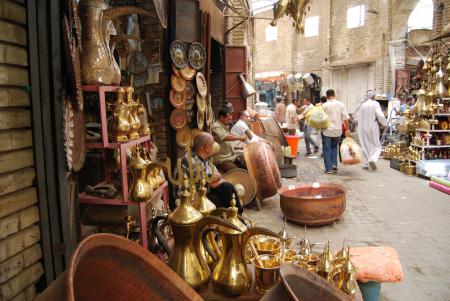
Iraq has long reflected cultural diversity. Although Iraqis generally are a religious and conservative people, there are strong secular tendencies in the country.
Iraq is a Muslim nation with Arabic and Kurdish as its official languages. As such, Islamic holidays are celebrated. Other holidays include the Newroz, the Iraqi Army Day, and the International Workers’ holiday. Weekends in Iraq are Friday and Saturday, as opposed to the Western version of Saturday and Sunday.
There are many values that are honored in the Iraqi culture, including generosity and humility. Men commonly hold hands or kiss when greeting each other, but this is typically not the case for men and women. Respect is given to the elderly and women, especially those with children.
Many markets reflect local culture and economy such as the famous Al-Safafeer market in Baghdad which is one of the oldest markets in the city established during the Abbasid Caliphate and remains famous for various copper collectables and exhibits.
Several institutions in Iraq boast the recreational culture of live theatre. Notable institutions in Baghdad include the Iraqi National Orchestra and the National Theatre of Iraq. Cultural education is fostered through institutions such as the Academy of Music and the Institute of Fine Arts.
The flag of Iraq is an important national symbol. It is composed of three colored, horizontal sections: red on the top, white in the middle, and black on the bottom. The phrase Allahu Akbar “God is great” appears on the white band of the flag.
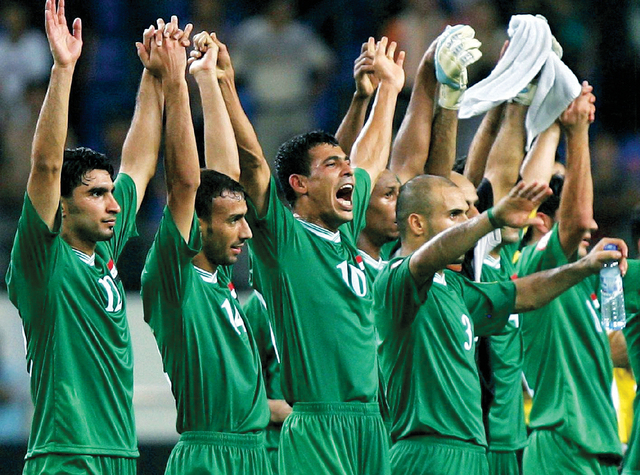
Sports
Football (soccer) is the most common sport in Iraq. The Federation of Iraqi football was officially established in 1948 and joined the International Federation of FIFA two years later. The Iraqi soccer team has had many major achievements. These include going to the finals in the World Cup in Mexico in 1986, winning the Asian Cup in 2007, and winning fourth place in the Olympic Games in 2004, the highest achievement of any Asian team.
Cuisine
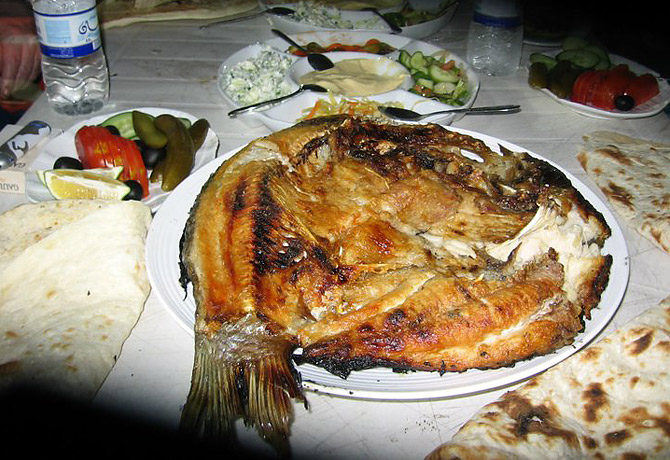
Iraqi cuisine mirrors that of Syria and Lebanon, with strong influences from the culinary traditions of Turkey and Iran. Popular dishes include kebab (skewered meat, typically beef), falafel (fried chickpea balls), kofta (Iraqi meatballs) and masgouf (open-air-grilled carp). Meals typically begin with mezza, appetizers or salads similar to Spanish tapas. Mezza includes dips like baba ghanoush (baked eggplant) and hummus (chickpea) as well as small portions like dolma (grape leaves stuffed with vegetables, rice and sometimes meat). Long-grain rice is a staple in Iraq and is served with most dishes.
Music
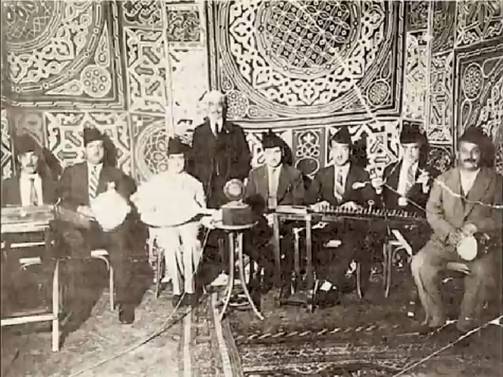
Iraqi music has its historic roots in ancient traditions but has continued to evolve through various eras. From creation of the oldest guitar in the world and the invention of the lute, to adding a fifth string to the rhythms and the various Iraqi maqams, Iraqi music proves to be an important part of the country's culture.
Renowned Iraqi composers include Abbas Jamil, NazimNaeem, Mohammed Noshi, Reza Ali, Kamal Al Sayid, Kawkab Hamza, Talib Ghali, Hameed Al Basri, Tariq Al Shibli, Mufeed Al Nasih, Jaffer Al Khafaf, Talib Al Qaraghouli and many others.
Popular Iraqi singers in the twentieth century include Nazem Al-Ghazali, Dakhil Hassan, Zohoor Hussein, Fuad Salem, Hussein Nema, Riaz Ahmed, Qahtan Al Attar, Maida Nuzhat, Anwar Abdul Wahab, SattarJabbar, Kazem Al Saher amongst others.
Art and Literature
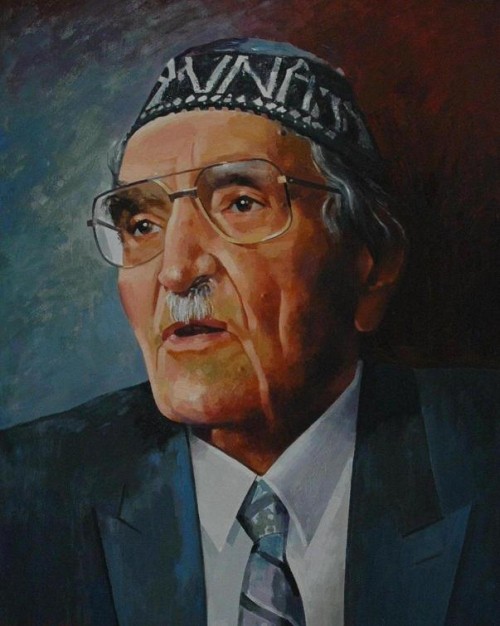
Iraq is home to prized art and literature which have always thrived in Iraq. The nation of Iraq produced one of the greatest Arab poets of all time: Abu Al Tayeb Al Mutanbi of the Abbasid Period. Modern-era poetic contributors include Mohammad Mahdi Al Jawahiri, Nazik Al Malaika, BadrShakir Al Sayyab, Jameel Sidqi Al Zahawi, Ma’sroof Al Rusafi and Abdul Wahab Al Bayati.
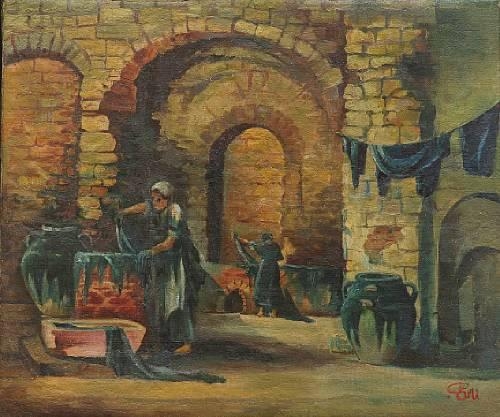
World renowned Iraqi painters and sculptors include Ismail Fatah Al Turk, Khalid Al Rahal, Mohammed GhaniHikmat and Faeq Hassan. Architectural designers and artists include Rifa'at Al Chaderchi, Mohamed Makiya, Abdel Aziz Al Kassab, Layla Al Attar, Mahmoud Sabri, JawadSaleem, Nuha Al-Radi, Faisal Luaiby, GhassanFaidi, and NazeehaSaleem. This is just a small sample among the abundance of artists and designers from Iraq.
To see Iraqi art in Washington, DC, consider visiting the Samarra Gallery at the Smithsonian’s Freer and Sackler Galleries. The gallery’s Ancient Near Eastern Art exhibit features more than 1,100 pieces of artwork dating from 5,000 B.C. and houses many artifacts and drawings from ancient Iraq.
Museums
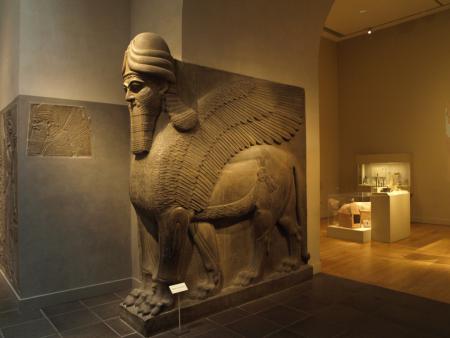
After the overthrow of Saddam Hussein in 2003, an estimated 15,000 pieces were stolen from Iraq’s National Museum. Close cooperation between the Embassy of Iraq in Washington, D.C. and the FBI and U.S. Immigration and Customs Enforcement resulted in the recovery of many of those artifacts. Items include pottery and paintings, lamps, a marble slab from one of Saddam Hussein’s palaces, a Western Asiatic necklace believed to date to the 2nd or 3rd century BC, and serving pieces and utensils inscribed with the crest of Iraq’s Baath Party.
With the return of many of these artifacts to Iraq, museums can delve into the depths of the country's history. Below are a few of the major museums, which are “must-see” to truly understand and appreciate all that Iraqi history has to offer. Baghdad is home to many buildings which showcase architecture from the Golden Age of Abbasid from the 8th and 9th centuries and from various Ottoman periods.
National Museum of Iraq: This museum is located in Baghdad, Iraq. Also known as the Iraq Museum, it contains relics from the Mesopotamian civilization which are said to be among the most important in the world. The museum chronicles the development of human civilization with artifacts dating back more than 10,000 years from the Sassanid, Assyrian, Babylonian, Sumerian, Akkadian and Ottoman dynasties as well as Stone Age and Prehistoric artifacts. Important artifacts from the over 5,000 year long history of Mesopotamia are on display in 28 galleries in both English and Arabic languages.
Baghdad Museum: This museum is located near Shuhada (Martyrs) Bridge at the area wherein the old Round City of Baghdad was originally established. The museum houses paintings, photographs, maps and illustrative materials that showcase the city's history. In addition, the museum depicts the folk heritage of Iraqi customs and traditions. A multilingual library is located in the museum.
Museum of Natural History: This museum is located in Rasafa, Baghdad and highlights Iraqi wildlife and biology. The museum showcases Iraqi history through various animals and plants and houses 26,000 books that delve even further into the history of Iraq.
Kurdish Textile Museum: Located in an elegant house inside the front gates of the Erbil Citadel, this museum offers a look at the cultural heritage of Kurdish people through the intricacy of Kurdish weaving.
Mosul Museum: This museum is located in Iraq's second largest city, Mosul. The museum is home to treasures (most notably depictions of Mosul life in tableau form) from the ancient sites of the old Assyrian capital cities Nineveh and Nimrud. Many of Mosul’s treasures, from giant sphinxlike statues to cuneiform tablets are trappings of the Assyrian Empire.
For more information:
